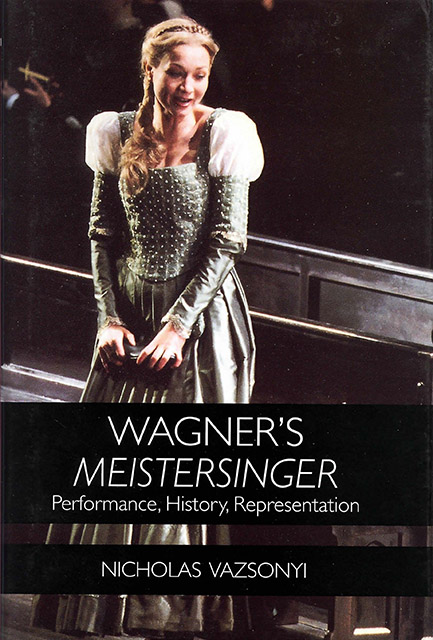6 - “The Most German of all German Operas”: Die Meistersinger through the Lens of the Third Reich
Published online by Cambridge University Press: 25 March 2023
Summary
The music of the Nazis is not the Prelude to Die Meistersinger, but rather the Horst-Wessel-Lied; they deserve credit for nothing else, and no more can or should be given to them.
—Ernst Bloch
In college classrooms across the United States, a common feature of many courses covering modern German history is a screening of Leni Riefenstahl’s propaganda film promoting the 1934 Nazi Party rally at Nürnberg. Usually Triumph des Willens (Triumph of the Will), which includes no narration, is presented with commentary by instructors or explanatory notes. These explications often include assertions that the music accompanying Riefenstahl's opening imagery comes from Richard Wagner's Die Meistersinger von Nürnberg: “For 68 seconds the screen remains dark. From this cinematic ‘void’ there gradually emerges the solemn, swelling sound of the overture from Wagner's Mastersingers of Nuremberg,” reads one guide to the movie. “Herbert Windt, a classical composer, created the Wagnerian-style orchestral scores which provide a background to the film,” this summary continues. “The Wagnerian motif was apparently suggested by Riefenstahl but was a natural and appropriate choice.”
Such claims are generally taken for granted: students, general readers, and even scholars have little difficulty accepting associations between Wagner's nationalistic music drama and National Socialist self-promotion in film. However, the main premise of this contention is simply not true: while Triumph des Willens later refers to Die Meistersinger, the film does not open with music from Wagner's opera. As a forbidding Nazi eagle appears on the screen, swastika in its talons, and the camera pans to title and credits styled as if carved in stone, the music climaxes in a potent, martial theme—apparently of Windt's own design.
Riefenstahl did decide on nonoriginal music to accompany the famous sequence showing sublime cloud banks surrounding Hitler's plane. Woven into contrapuntal texture and performed by full orchestra, the identity of this theme remains obscure for several bars, but it gradually reveals itself as the haunting and ultimately cursed tune of Die Fahne hoch!—better known as the Horst-Wessel-Lied. It is with full statement of this party Kampflied that Hitler's plane breaks through the clouds to a spectacular aerial view of the towers, ramparts, and pitched roofs of Dürer's city in its prewar glory. No matter how appropriate melodies from Wagner's tribute to Alt-Nürnberg might have been for this cinematic moment, Riefenstahl did not employ them.
- Type
- Chapter
- Information
- Wagner's MeistersingerPerformance, History, Representation, pp. 98 - 119Publisher: Boydell & BrewerPrint publication year: 2003
- 1
- Cited by



